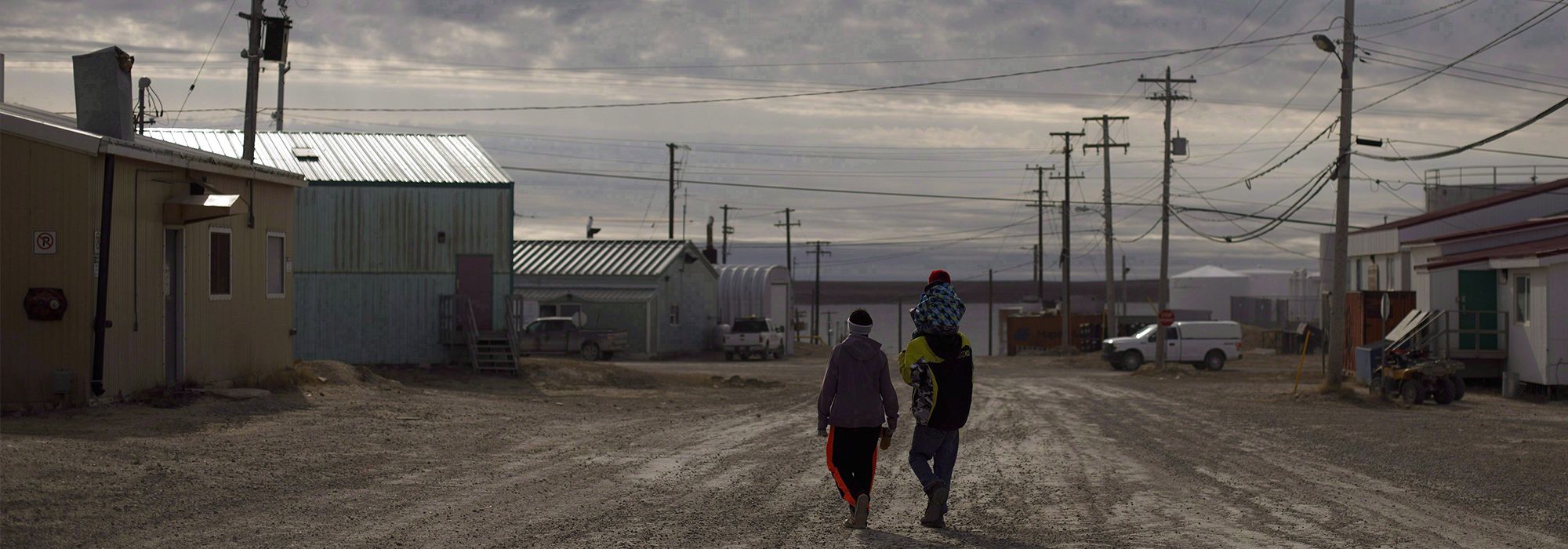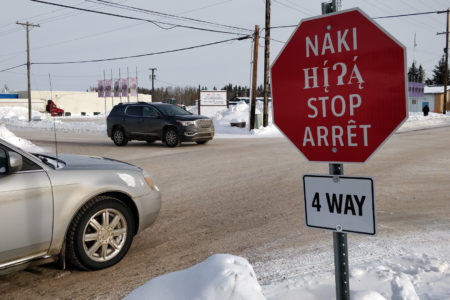
In a territory where cost of living is king in political discourse, the government of the Northwest Territories’ measured opposition to the government of Canada’s carbon tax proposal in early 2016 came as no surprise. Citing the potential impact of the tax on both consumers and businesses in an already high-cost environment with few reliable alternatives to diesel, Premier Bob McLeod joined his pan-territorial counterparts in expressing concern about pricing carbon. In comparison with the national and provincial conversations over the carbon tax, however, debate in the Northwest Territories has been decidedly muted. This is not unusual: in southern Canada, partisan politics tends to stoke and intensify differences in policy. This dynamic is largely lacking in the NWT’s consensus form of government, where there are no political parties and cabinet is expected to work with regular MLAs to govern the territory.
This early reluctance to put a price on carbon subsided rather quickly, as the territorial government negotiated with the federal government on the Pan-Canadian Framework on Clean Growth and Climate Change, starting in 2016. Recognizing the inevitability of the carbon tax, the government decided to negotiate rather than have carbon pricing imposed upon it.
Across Canada’s three northern territories, only the NWT has chosen to develop its own carbon tax scheme; Yukon and Nunavut have opted for the federal backstop. In a jurisdiction where electricity rates vary from around 30 cents/kWh to over $3/kWh, and exorbitant prices for food and other necessities are a frequent target of social media ire, cost of living is a top-of-mind issue for NWT residents. Due to this public concern, significant exemptions to the carbon tax were established during the negotiations in early 2018, for heating fuel, aviation fuel and diesel used for electrical generation. In addition, a new cost-of-living benefit will be periodically paid out to all NWT residents to offset the impact of the carbon tax. As a result, the only obvious effect from the tax that NWT residents will experience is a hike in the price of gasoline; to date, however, no NWT politicians have been observed taking selfies at gas pumps and decrying the impending carbon tax.
The tax will initially add just under five cents to the price of a litre of gasoline, rising to approximately twelve cents by 2022, so northerners’ reaction has been understandably subdued; it is not unusual for northern gas prices to fluctuate considerably from year to year, or to remain artificially high for long periods. In Yellowknife in the early 2010s, the advertised price of gas at virtually all gas stations stubbornly remained at $1.389/litre for nearly four years. (The price of gas in Yellowknife currently stands at $1.339/litre.) Some MLAs have raised concerns about the impact of the carbon tax on those participating in traditional activities such as hunting and fishing, which require gas for snowmobiles, four-wheelers and boats, all common methods of transportation in many of the NWT’s smaller communities. It remains to be seen whether the cost-of-living benefit will fully address these concerns.
Originally, the territory was set to impose the new tax on July 1, 2019. Legislative delays due to some minor modifications to the scheme have pushed the implementation date back to September 1, with the third reading of the Petroleum Products Tax Act set to take place in an August sitting of the Legislative Assembly.
Despite the territory’s nonpartisan environment, partisan political machinations are not entirely absent from the NWT. McLeod recently co-signed a letter with five other premiers — all Conservative — to Prime Minister Justin Trudeau regarding Bill C-69, legislation that will change the way regulatory authorities assess proposed major resource projects, and Bill C-48, the Oil Tanker Moratorium Act. This followed a “red alert” issued by the Premier in late 2017, a communiqué criticizing Ottawa’s approach to resource development in the North, in particular the moratorium imposed by Canada on offshore oil and gas development in the Arctic. In a territory with few degrees of separation, one wonders about the dinner conversation when the Premier gets together with his brother, Michael McLeod, the Liberal MP for the Northwest Territories. Although Premier McLeod joined with other premiers in objecting to the two controversial bills, this collaboration has not extended to the outright opposition to the carbon tax seen from some provincial governments.
There was a recognition during negotiations for the federal governments carbon tax in 2017 that the three northern territories are unique in the Canadian context, and should be treated differently for that reason.
In the Legislative Assembly, the government explicitly acknowledged that creating its own carbon tax system would result in a better arrangement for NWT residents and businesses than what the federal backstop might provide. The ability to craft its own cost-of-living-benefit while still meeting the federal government’s requirements seemed to be one of the main advantages. Further, the territory was able to establish a rebate system for large industrial emitters, namely the three diamond mines in the NWT: 75 percent of the carbon taxes they will pay on fuels not used for transportation will be rebated directly to them, with the remaining tax revenue held in trust and available to them for green technology projects.
No court challenges or public denunciations of the federal scheme have emanated from the NWT, unlike the approach pursued by several provinces. Debate among MLAs has focused mainly on how the government would assist residents and businesses with the financial impact of the carbon tax, and whether in fact carbon pricing is going far enough, fast enough. Some public discussion has also ensued, primarily in the media, on the tax’s public policy implications: will the generosity of the proposed rebates and exemptions negate the incentive to reduce fossil fuel use — the ultimate goal of carbon pricing? If the only tangible effect of the carbon tax is to increase the cost of gasoline, it might not motivate NWT residents to seek cleaner alternatives or to use energy more efficiently for space heating or electricity generation (although the already high energy costs due to northern communities’ remote nature and distance from suppliers might do so).
It is widely acknowledged that the carbon tax’s effect on the NWT’s overall GHG emissions will be relatively small. There was a recognition during negotiations in 2017 that the three northern territories are unique in the Canadian context, and should be treated differently for that reason. The territories will feel a disproportionate impact from the carbon tax implemented in southern Canada because of their reliance on southern goods and transportation, and their climate and remoteness must be considered in designing locally implemented carbon taxes. Both Ottawa and the NWT government have committed significant resources to assisting NWT residents, businesses and governments in the transition away from fossil fuels, most recently through the joint announcement of $23 million from the Low Carbon Economy Leadership Fund.
With the new carbon tax set to take effect on September 1, and both federal and territorial elections slated for not long after that, there is some uncertainty around the future of the carbon tax in the NWT. At least one major federal party is pledging to cancel the tax if elected. For northerners, lowering costs has always been the primary motivation to reduce fossil fuel use, and with or without the additional incentive of carbon pricing, many residents, businesses and communities throughout the territory will continue to seek ways to reduce their energy costs and fossil fuel usage.
This article is part of the The evolution of carbon pricing in the provinces special feature.
Photo: Three Arctic communities fear they’ve been cut off from crucial winter supplies after a government-owned company cancelled the annual supply barge that replenishes them. A family walks down the streets in Cambridge Bay, Nunavut, in August, 2017. The company, owned by the Northwest Territories, says there’s too much sea ice to run the scheduled barge to the central Arctic communities of Paulatuk, Kugluktuk and Cambridge Bay. The Canadian Press, by Jason Franson.
Do you have something to say about the article you just read? Be part of the Policy Options discussion, and send in your own submission. Here is a link on how to do it. | Souhaitez-vous réagir à cet article ? Joignez-vous aux débats d’Options politiques et soumettez-nous votre texte en suivant ces directives.








